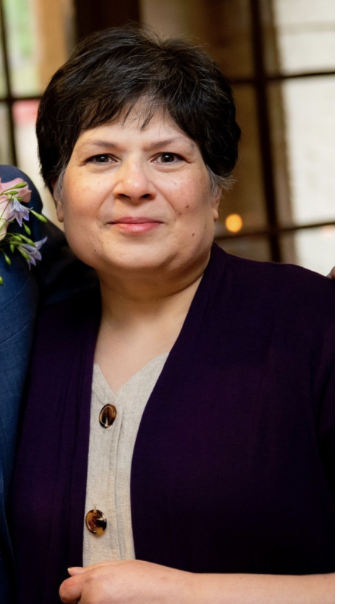My story is a very bitter one. I started to have virtually all the symptoms of Craniopharyngioma, but did not get diagnosed and treated for a year. Most Craniopharyngioma patients were either children or adults in their 50s or 60s. I was in my mid-20s, so couldn’t be possible have a pituitary tumor.
I was a graduate student at the time, but remember a night when I was home visiting my parents. Around 3am I went downstairs to get some water. I ended up opening a large can of pineapple juice and drinking all of it. My father had come down and watched me. In an anguished voice, he asked, “What’s happening?” But I didn’t know.
One doctor gave me terrible tests, like a liver biopsy and inserting an air bubble up my spine. He also made me re-take a water deprivation test, which is very hard if you have diabetes insipidus. I couldn’t stand just sitting in bed fantasizing about water so I went for a walk. When the results were borderline he accused me of cheating. In the end he diagnosed me as having a tropical disease, and put me on a corticosteroid called Prednisone. I gained over 40 pounds on it, most of it in my stomach. It ruined my chances of dating.
At some point I was put on DDAVP (desmopressin acetate) and the intense thirst and constant peeing ended. That was a minor miracle. Later, I had surgery and radiation therapy. I was told I was very lucky, because the idea of following surgery was new. That may be why I’ve lived so long.

It’s been almost 40 years since I first got sick. For a long time, I was unhappy with my obesity caused by Dr. Horrible, unhappy that I felt so isolated and knew of no one else who had my brain tumor (or any brain tumor), and also lonely, greatly dissatisfied with the doctors who didn’t diagnose my tumor and then didn’t put me on hormone replacement. The refusal to see problems continues with some doctors.
But eventually I realized that I had a lot to be grateful for. I’m grateful I got to know my niece and nephews, and spoiled them rotten. I’m grateful that I’ve become so close to my brother and cousins. I’m glad that I can afford to live on my own. I look forward to the development of the sodium meter, so I can better measure my needs for desmopressin acetate. I’m also grateful I found the Raymond A Wood Foundation, and hope to attend the next conference.
I have not yet been able to forgive the doctor that caused so much pain, but I’m moving forward. Slowly. I look forward to meeting others with pituitary tumors at the next RAWF conference, as well as staff and speakers. My memory is starting to fade as I get older, but I am still intelligent and cheerful (except with some doctors).
If you would like to share your story, please complete this form or email us at outreach@rawoodfoundation.org.

